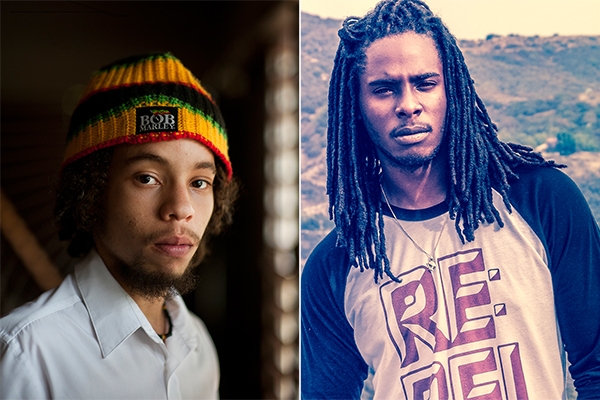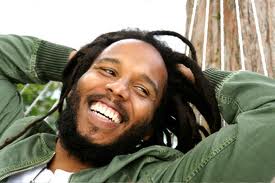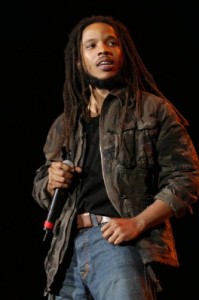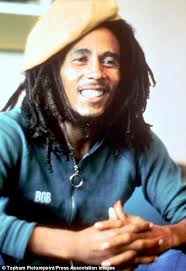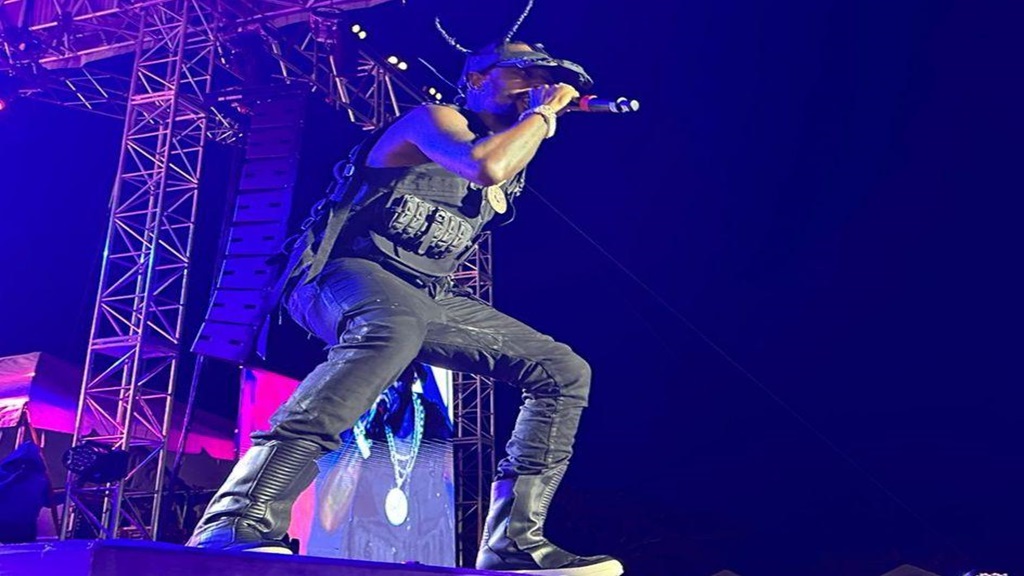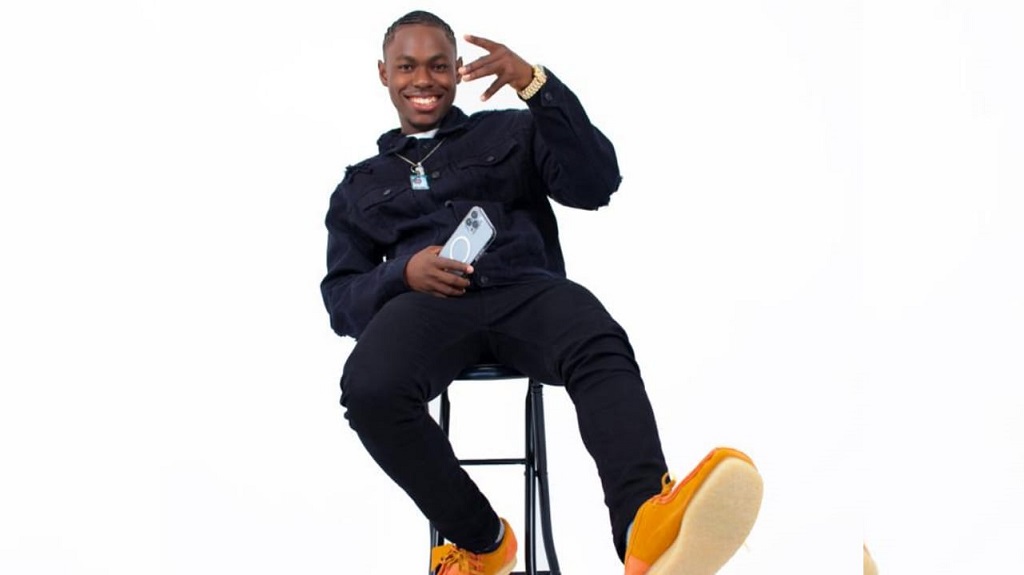A decade after Ziggy Marley and the Melody Makers followed in their father’s musical footsteps with Play the Game Right, two of Bob‘s other sons, Stephen and Damian, surprised many with solo releases that added hip-hop and dancehall to their father’s classic reggae sound. Now, a generation later, it’s Bob’s grandchildren who are mixing it up, making music that incorporates contemporary influences from around the globe.
“It’s not like I just grew up with reggae culture,” says Daniel Bambaata Marley, the oldest of Ziggy’s six kids, whose singles “Treat You Right” and “Live It in a Fear” find the 24-year-old singing over melodic reggae rhythms but whose Soundcloud highlights an affinity for vintage hip-hop. “When I came to Miami for school, I was in the cipher with all my friends rapping, but the root of my music, regardless of if it might sound a different way, is always reggae.”
Across the family tree, Stephen Marley’s eldest son Joseph, known as Jo Mersa, last week released his debut EP, Comfortable, through Ghetto Youths International, while Matthew Prendergast, a son of Sharon Marley known on stage as Biggz General, and Ky-Mani Marley Jr, known as KJ Marley, both released mixtapes in 2013.
“I am one of the new generation of Marleys, but I am still experimenting at the same time,” says Mersa, who will soon join his father for shows on Slightly Stoopid’s summer tour. ”My plan is to do something new with my roots.”
Accordingly, the 23-year-old’s sound favors dancehall over traditional reggae, and Comfortable, on which he produced five of six tracks, also contains elements of R&B and EDM.
Mersa and Bambaata have both been performing since they were toddlers, when their fathers would often bring them out at Melody Makers shows to assist in performing 1989′s “Look Who’s Dancing.” Recalls Mersa: “We would get up on stage with my brothers and sisters and Daniel’s sister Justice, and there was a certain time where they would just give us the mic and we’d do our certain favorite part of the song.”
A young Mersa also paid close attention when artists like the Fugees and Busta Rhymes visited the Lion’s Den, the recording studio Stephen built at their home in Miami. He can even be seen, pre-school age and wearing a monkey mask, in the 1996 video for the Fugees’ Stephen Marley-assisted cover of “No Woman, No Cry.”
“It was a very magical thing, seeing those people come around to the house and how the whole work process would happen,” Mersa says. “I would come home and try to do homework, but I’d end up getting distracted and go peek in the studio. You would always want to run in and run out to see what was going on.”
Mersa and Bambaata Marley say they began working on their own beats and songs during their middle-school years, but access to the family’s studios, which also include the legendary Tuff Gong facility Bob founded in Kingston, came only with age and experience.
“Uncle Steve was always like, ‘When you’re ready, you get to use the big studio,’” Bambaata Marley recalls. “My uncles would keep an eye on us while we were growing and make sure we’re headed in the right direction, but there was nobody taking us by the hand and spoon-feeding us what to do and how to do things.”
Making their debuts alongside one another on the 2010 single ”My Girl,” Mersa and Bambaata Marley were featured on last year’s Ghetto Youths International compilation Set Up Shop, Vol. 1, along with tracks by Damian, Stephen and Julian Marley, as well as reggae veteran Wayne Marshall. Both have also appeared on tunes by their respective fathers: Bambaata on“Changes,” from Ziggy’s 2011 album Wild and Free; and Mersa on “Revelation Party,” from Stephen’s upcoming album Revelation Part 2: The Fruit of Life.
“It is like a little stamp of approval from my dad,” Mersa says of the track, which the two performed together nightly on tour earlier this spring. “To say, ‘All right, now you are ready.’”






